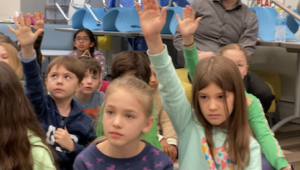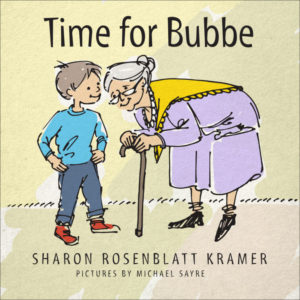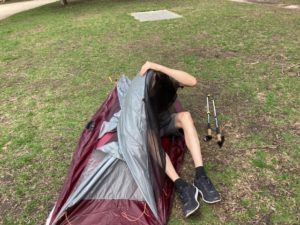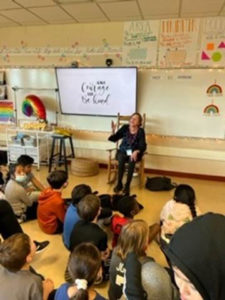
Today’s guest blogger, Armand Cerbone.
The last assignment I gave my memoir-writing classes before we took our spring break was to choose one of the movies nominated for an Oscar for best picture this year an have its title be the title of their essay. “You don’t have to see the movie,” I assured them. “Just use one of the titles.” A writer who’d vacationed in Northern Ireland came back with 500 words about their time in Belfast; a few wrote about disastrous events after telling someone, sure, you can Drive My Car; and many chose The Power of the Dog to write about their pups.
Today’s guest blogger, Armand Cerbone, was one of the very few who chose CODA. A board certified clinical psychologist, Armand has been advocating for affirmative mental health care and policies for LGBTQ+ individuals and couples for more than 40 years. He celebrated his 80th birthday last July and then celebrated again two days later by marrying Michael Zartman, his partner of 27 years. With classes starting up again, timing is perfect for Armand’s CODA essay, a lovely ode to memoir-writing.
by Armand R. Cerbone, Ph.D., ABPP
Coda: Something that serves to round out, conclude, or summarize and usually has its own intertest.
Each week in class we accept a prompt to summarize coda-like: a meaningful moment in a 500-word snippet. We pull a page or two from our past and make the past live again, if only for a minute. Stringing these memoirs together week after week, I am forming mosaics of lives lived more fully than I might ever have imagined, all about people I might never have known if not for the artifice of this class.
I wonder, too: if not for this class for the aged and aging, would we bother to engage one another in this way? Would we bother to engage ourselves if not for the mandate to call up a short scene from a much larger story? Would a beer or wine over dinner prompt us to tell the same tales we tell here in class?
Someone said that the young dream about the future, and the old dream about the past. As I draft the coda to my life, I dream about what I can yet do while I can do it. And how to keep myself fit enough to do what I can do now. I seek to marry the me that was with the me that might still yet be. That feels like the roundness implied in a coda.
I also wrestle with how to live for tomorrow and tomorrow and maybe not tomorrow. A fearful or morbid endeavor? Not at all. The awareness of limited tomorrows keeps me living as fully as I can today, and the five-hundred-word memoirs help. Your essays assure me you are marrying rich pasts with implicit promising tomorrows, too.
A friend in L.A., a victim of a different plague than the one threatening us now, used to call on Saturday mornings, knowing I would be in the midst of a hundred must-dos. Every call was the same. “Armand,” he would ask provocatively. “Are you making every moment count?”
Life has changed, of course. I can no longer multitask without risking life or limb. But trying to achieve as many as I can safely do reassures me that I am at least answering my morning prayer, “God, save me from complacency.”
And why do we draft memoir after memoir and share one after another? From what I can see, we share to connect and connect to share. Memoirs don’t let me forget that the importance of yesterday was learning how to connect, the importance of today is to enjoy and nurture connections, and the importance of tomorrow is, well…we’ll just have to wait and see.





